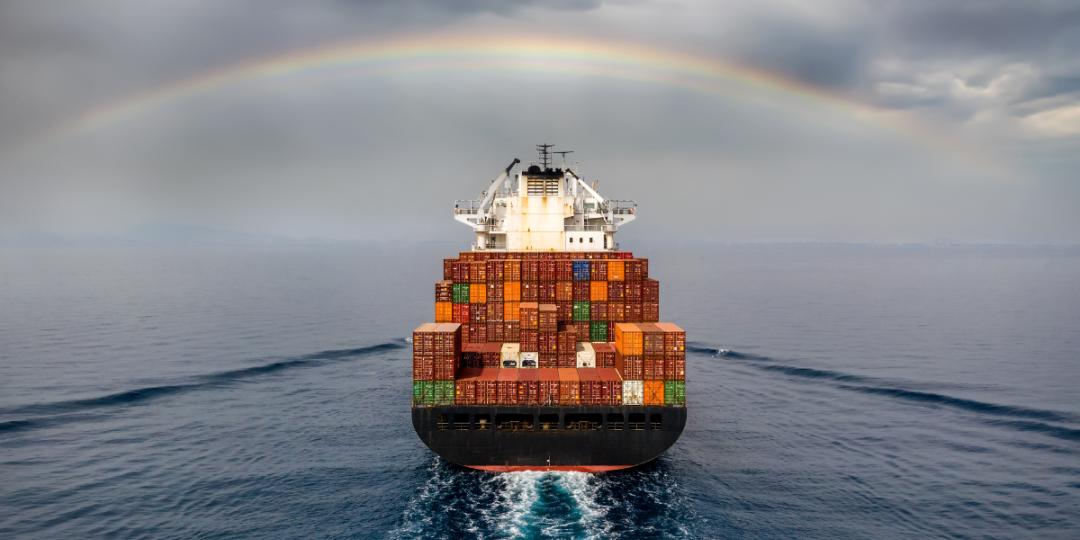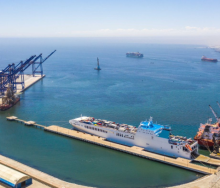Federal Maritime Commission (FMC) Commissioner Rebecca Dye has released her long-awaited report into the escalation of ocean freight rates and demurrage and detention charges during the Covid-19 pandemic.
The Effects of Covid-19 on the US International Ocean Transportation Supply Chain, a two-year investigation involving hundreds of Commission stakeholders participating through team meetings, phone conversations, emails, and presentations to various groups, looked into the high cost of shipping cargo and excessive demurrage and detention charges which were having a serious negative impact on the US economy.
The report was presented to the FMC on May 18 but has only just been shared with the public.
While shippers accused carriers of anticompetitive behaviour as freight rates soared to unprecedented levels, the report’s findings paint a different picture.
“The historically high freight rates experienced recently by US exporters and importers have been devastating to many, but I want to emphasise that the Commission has done its job during the Covid-19 pandemic to enforce our competition authority.
“Our markets are competitive and the high ocean freight rates have been determined by unprecedented consumer demand, primarily in the United States, that overwhelmed the supply of vessel capacity. Congestion further constrained available capacity,” she said.
Dye added that during the pandemic the Commission had moved forward on enforcement of the ‘Interpretive Rule on Detention and Demurrage’ and ensuring compliance by carriers with the “incentive principle” embodied in the rule.
“I look forward to implementation by the Commission of my final recommendations, which I believe will provide badly needed clarity and consistency in certain port and supply chain operations, especially involving “earliest return dates” and “empty container return.”
The 12 new recommendations include:
· A new Commission “International Ocean Shipping Supply Chain Program”;
· A rule making to provide coherence and clarity on empty container return practices;
· A rule making to provide coherence and clarity on earliest return date practices;
· Continued Commission support for the new FMC “Ocean Carrier Compliance Program”, including a new requirement for ocean common carriers, seaports, and marine terminals to employ an FMC Compliance Officer;
· An FMC Outreach Initiative to provide more information to the shipping public about FMC competition enforcement, service contracts, forecasting, and shippers associations, among other topics;
· Enhanced cooperation with the federal agency most experienced in agricultural export promotion, the Department of Agriculture, concerning container availability and other issues;
· A Commission Investigation into practices relating to the numerous charges assessed by ocean common carriers and seaports and marine terminals through tariffs;
· A rule making to provide coherence and clarity on merchant haulage and carrier haulage;
· A new “National Seaport, Marine Terminal, and Ocean Carrier Advisory Committee” to work cooperatively with the Commission’s National Shipper Advisory Committee;
· A revival of the Export Rapid Response Team programme as agreed by all ocean carrier alliance CEOs;
· An FMC Supply Chain Innovation Teams engagement to discuss blank sailing coordination and information availability; and
· A reinvigorated focus on the extreme supply chain equipment dislocations in Memphis railheads, other rail facilities, and other facilities around the country.
“Commissioner Dye’s work leading this Fact Finding investigation has been invaluable in determining ways the FMC can best assist importers and exporters to manage the supply chain challenges linked with the Covid-19 pandemic. I am eager to work with her and our colleagues to implement the final recommendations which will guide the FMC in keeping big players in the ocean shipping industry accountable,” said chairman Daniel B Maffei.













